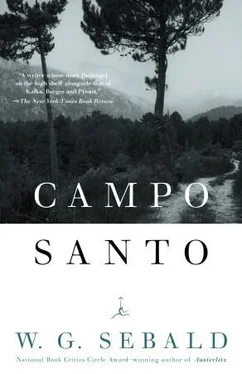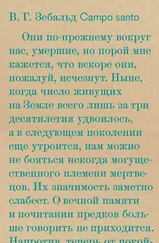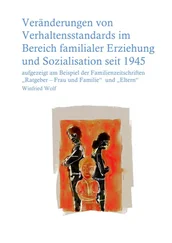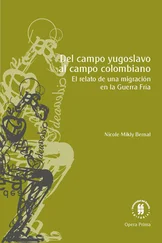Constructs of Mourning: Günter Grass and Wolfgang Hildesheimer
I. The inability to mourn: deficiencies in postwar literature
And if the burthen of Isaac were sufficient for an holocaust, a man may carry his owne pyre .
SIR THOMAS BROWNE, HYDRIOTAPHIA. URNE-BURIAL; OR, A BRIEF DISCOURSE OF THE SEPULCHRALL URNES LATELY FOUND IN NORFOLK (LONDON, 1658)
Alexander and Margarete Mitscherlich’s theory of “the inability to mourn,” first formulated in 1967, has since proved — although statistically this can hardly be verified — to be one of the clearest explanations given for the mental disposition of postwar society in West Germany. 1The absence of “reactions of mourning after a national catastrophe of vast extent,” the “striking paralysis of feeling which was the response to the mountains of corpses in the concentration camps, the disappearance of the German armies into imprisonment, the news of the murder of millions of Jews, Poles and Russians, and political opponents from the ranks of the German people themselves,” left negative impressions on the internal life of the new society, with consequences that can be properly understood only now, seen in the more distant retrospect of, say, the films of Fassbinder and Kluge.
The Mitscherlichs’ theory of the distorted mental attitude of Federal German society as it took shape finds support not least — although they do not mention this — in the fact that attempts were actually made to organize collective mourning. The inept institutions of National Remembrance Day and German Unity Day, when during the Cold War years people were supposed to put candles in their windows for their brothers and sisters in the East, were ill-judged acknowledgments that there had been no natural reactions of mourning, so that the state had, as it were, to create them by decree. The imposition of mourning on a state that could no longer afford to indulge in a national day of celebration was the first sign that the Germans had managed to avoid a phase of collective melancholy (whose objective correlate would have wrecked the Morgenthau Plan), instead bringing their psychological energies to bear on “resisting the experience of a melancholy impoverishment of the self.” 2
The Mitscherlichs showed that “the moral duty of mourning for the victims of our ideological aims … for the time being could be only a superficial intellectual phenomenon,” since in the circumstances the emotional collapse that psychologists might have expected had been displaced by mechanisms and strategies “very close to the protective biological strategy for survival, if not actually analogous to it.” 3While there was any perceptible questioning from outside of the nation’s right to exist, and while the population’s concrete needs stood in the way of preoccupation with their own guilt, then mourning and melancholy — both of which can be allowed expression only against a reasonably secure social background — were suppressed. That is why Alexander and Margarete Mitscherlich themselves do not set out to accuse the nation of psychologically inadequate reactions in the years directly after the end of the war because of the absence of mourning. What they do consider a problem is the fact that “even later there was no proper mourning for our fellow human beings, killed in such great numbers by our own deeds.” That deficiency is perhaps most obvious in the literature written some ten or twelve years after currency reform, which shows hardly any insight into ideas of collective guilt and the need to describe the wrong that had been done. In many novels of the 1950s, for instance, egocentric sentimentality and criticisms of the new society which fall rather short of the mark are a substitute for the study of what happened to others among us. It is probably therefore fair to say that the authors of the 1950s, predestined to be the conscience of the new society, were as deaf to conscience as that new society itself.
Nossack: An Exception
Among the few postwar writers who felt scruples about what had happened, and tried to articulate them in a form still relevant today, is Hans Erich Nossack. In his notes made at the time, he says a great deal about the responsibility of the survivors for their younger brothers, the shame of not being among the victims, sleepless nights, the necessity of thinking things out to the end, and failure as the proper way for us to die. 4Nossack tried to understand the various categories of mourning through the example of Greek tragedy, and he realized that in a society which is too deeply afraid of feeling guilt to look back, if it is to conserve what vital energies it has left, anyone who mentions “what lies behind us” is likely to be condemned by the general public. 5Earlier than most others, Nossack understood where the difficulty of postwar writing chiefly lay: in the fact that memory was shameful and that anyone who did remember would, like Hamlet, be admonished by the new men in power.
Do not for ever with thy vailed lids
Seek for thy noble father in the dust:
Thou know’st ’tis common; all that lives must die ,
Passing through nature to eternity . 6
These rather diplomatic words from the queen, who feels both concern for her son and the fear of discovery, are followed by the new king’s more explicit warning that to continue mourning is “impious stubbornness,” from which we may conclude that in a political community which bears a heavy burden of guilt, wishing to remember the victims that preceded its establishment is the same thing as expressing doubts of the legitimacy of the new order, which must ignore the past and identify with the victors.
Wishful Thinking
While Nossack was trying to maintain a position of profound skepticism like Hamlet’s against the consensus of society at large, most of the outstanding writers of the new Federal Republic (for instance Richter, Andersch, and Böll) were already busy propagating the myth of the good German who had no choice but to let everything wash over him and bear it. At the heart of the apologia thus circulated was the fiction of a difference between passive resistance and passive collaboration, one that was in some way important.
As a result, in most literary works of the 1950s, which are quite often decked out with a love story in which a good German man meets a Polish or Jewish girl, the incriminating past is “reappraised” sentimentally rather than emotionally, and simultaneously the author extensively and successfully avoids — as the Mitscherlichs note in the case history appended to their essay — saying any more about the victims of the Fascist system. 7If in individual psychological cases this course of action serves “to keep signs of affection that are in short suppy anyway within the pattern of family roles,” then in literature it maintains traditional narrative forms, which could not convey an authentic attempt to mourn by identifying with the real victims. 8
The Mitscherlichs rightly complain that we, the readers, who would have liked to know more about the conflicts of the survivors and be given a more honest account of them, must put up with poorly drawn figments of wishful thinking that personify innocence, characters who can bear life among their opportunistic countrymen only as isolated individuals retreating, with resignation, into a private existence without any obligations, even though we know that such noble heroes do not usually exist. 9“The gulf between literature and politics in our country is as wide as ever,” so the Mitscherlichs summed it up in the middle of the 1960s, “and so far none of our writers seems to have succeeded in influencing the political awareness and social culture of the Federal Republic one iota with his works.” 10
Читать дальше












